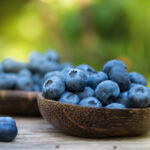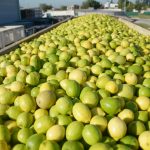Early organic Argentine pears soon to hit the water for U.S. market

A U.S. fruit distributor is positive about the upcoming import deal for organic Argentine pears, in a market where supply has not been able to keep up with demand. 
Pacific Organic Produce founder Greg Holzman spoke with www.freshfruitportal.com ahead of a trip to South America, where he will be looking at pome fruit crops in Argentina and Chile, as well as the extent of El Niño's effects on Peruvian mango volumes.
"We'll have some early Giffard pears on the water already at the end of this week - it's an early Bartlett, and we have a few loads coming in from Rio Negro in Argentina," he said
"It's the earliest pear of the season, and I don't think we've ever sold them before."
He said regular Argentina's Bartletts were due to start next week, to be followed by Bosc, Autumn Bartlett, Packham's and D'Anjou.
"The U.S. supply of pears is almost always pretty stagnant, so demand keeps growing and volume hasn’t grown very much," Holzman said.
"We have our issues trying to sell small pears, and in Patagonia, Argentina they grow a lot of small fruit. That's a little bit of a challenge, and trying and get Americans to think about supporting small pears is important to us.
"We’re hoping to put more press out about pears and try to get people to think about them. They buy bags of apples but bags of pears aren’t as common."
As the largest organic mango player in the U.S., Pacific is also gearing up for the first batches from the Peruvian season.
"I think we're getting our first containers at the end of this week or early next. The Ecuadorian season is ending and the Peruvian season is stronger because the varietal is a Kent or a Keitt versus a Tommy, so it's a better piece of fruit.
"We're looking forward to that and we have a tremendous share of the market; a lot of the growers want to hire us so we have a large portion of the organic share in mangoes, and we hope to see good strong movement."
However, the company will have to contend with shorter volumes due to the effects of El Niño on mango plant flowering in northen Peru, which he said some were speculating would cut the organic crop by some 45%.
"It's more severe for organics. I'll be getting more information this week," he said.
He added that during his visit to Chile he would also be looking at the situation regarding methyl bromide treatment requirements for blueberries in Chile's VI (O'Higgins), VII (Maule) and VIII (Biobio) regions, which rules out organic exports from those areas.
Another hot topic in the global fruit industry at the moment is the effect of changing currencies. When asked about the matter, Holzman said it would likely drive more fruit to the U.S. and the market had to be prepared.
"There's no question the strong dollar is driving most of the market towards us and we have to try to hold us and make sure the demand is there," he said.
"The ruble has also lost so much value, and there's a lot of fruit that would normally go to Russia. Sometimes Red Delicious apples will be grown organically but there's not enough of a market for them, and so they go to Russia and are sold as conventional apples. This year there's not going to be as much interest."
Photo: Jaymethunt, via Pixabay















































